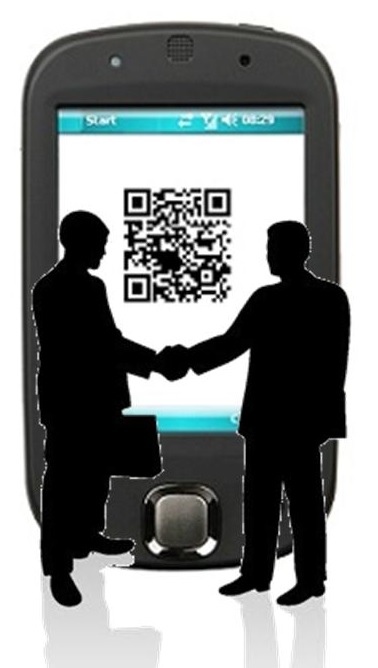UniCredit and First Data are now conducting a pilot of their first smartphone based transaction solution.
The Italian bank called UniCredit has entered into a partnership with First Data in order to test a new mobile payments service that will be based on the scanning of QR codes.
The pilot is now officially underway and the companies await the first data to gauge its successes.
The testing of the service has already begun, and is using the Mobile Gateway from First Data in order to both generate and to exchange the QR codes required for the mobile payments system transactions between customers and merchants. According to First Data, this system provides the customer and the merchant with a number of different benefits.
The QR codes based system allows for a higher level of security and a lower number of risks per transaction.
 By scanning QR codes, it takes out the risks that are connected with having to enter credit card details for making mobile payments. At the same time, First Data also stated that this type of system makes it possible to take advantage of value enhanced service applications, such as offers, coupons, tickets, and paying bills.
By scanning QR codes, it takes out the risks that are connected with having to enter credit card details for making mobile payments. At the same time, First Data also stated that this type of system makes it possible to take advantage of value enhanced service applications, such as offers, coupons, tickets, and paying bills.
The pilot for the system using the QR codes is now underway as the first of a number of different mobile payments services upon which the partnered companies have already agreed to embark. They will be working together in a number of different markets around the globe in order to introduce these new smartphone based services.
According to the First Data president of international regions, John Elkins, “UniCredit has recognized the opportunities that Universal Commerce offers and we are delighted to be working with it to make this a reality for its international customer base.”
There have been a number of different mobile payments services that have already been introduced around the world that currently use QR codes as the method of completing the transaction. Among the most famous for its successes is the system that was implemented by the Starbucks chain of cafes. Its achievements have become a solid example of the possibilities that the technology has to offer.

 Headlines have been made from a number of American cemeteries that are now offering QR codes as an added feature on their gravestones, but they are also appearing in places such as China, and even in Wales at a cemetery for war veterans.
Headlines have been made from a number of American cemeteries that are now offering QR codes as an added feature on their gravestones, but they are also appearing in places such as China, and even in Wales at a cemetery for war veterans.